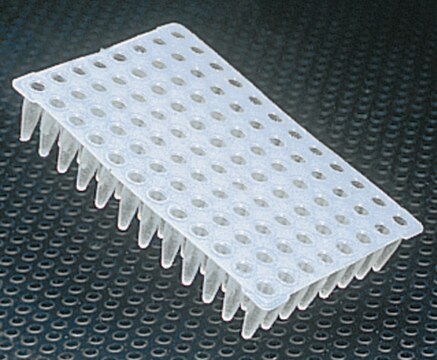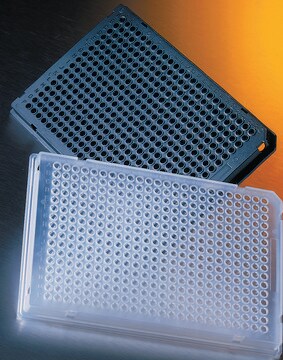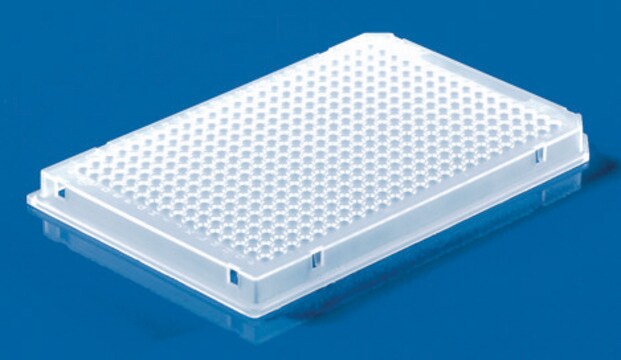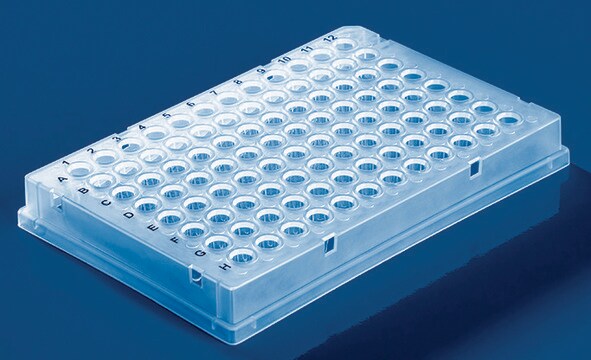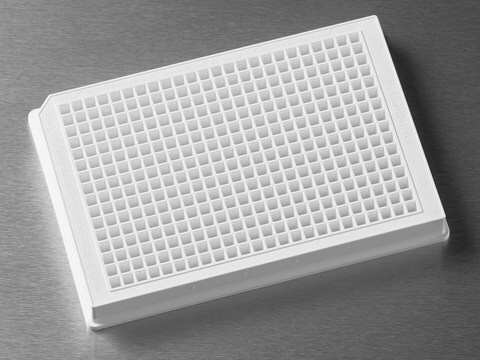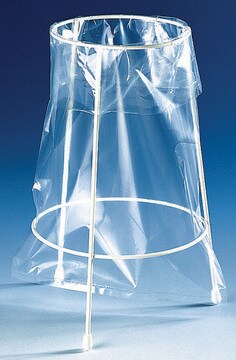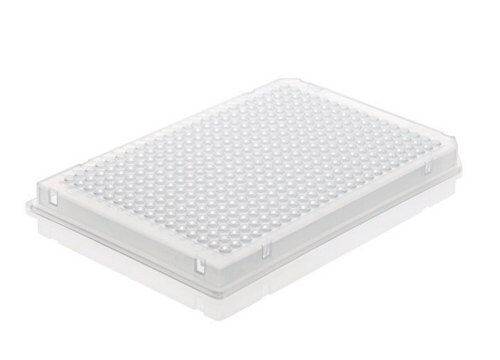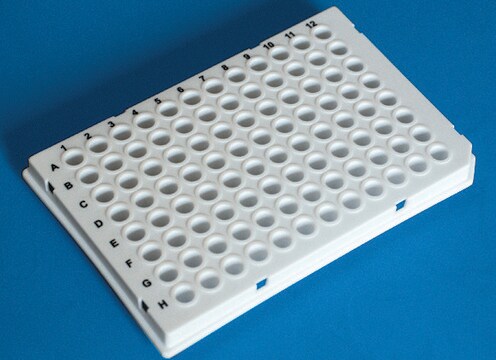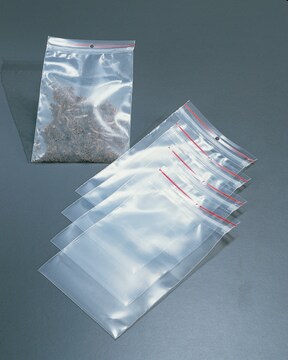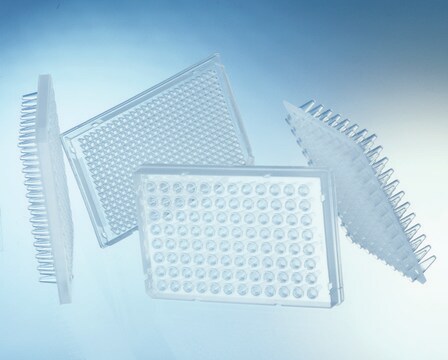Z374911
PCR multiwell plates
size 384 wells, polypropylene, skirt, non-sterile
Sinónimos:
384 multiwell PCR plate, 384 well PCR microplate, 384 well PCR plate, 384 well microtiter plate
About This Item
Productos recomendados
material
colorless polypropylene
polypropylene
sterility
non-sterile
non-sterile
feature
skirt
packaging
case of 50 ea
manufacturer/tradename
Sorenson 39620
technique(s)
PCR: suitable
size
384 wells
well volume
40 μL
well working volume
25 μL
suitability
suitable for (PCR, RT-PCR or DNA purification applications)
application(s)
agriculture
¿Está buscando productos similares? Visita Guía de comparación de productos
General description
Features and Benefits
- Virgin polypropylene
- Fully autoclavable
- Certified DNase- and RNase-free
- Wells have thin walls for rapid temperature equilibration and reduced cycle time
Certificados de análisis (COA)
Busque Certificados de análisis (COA) introduciendo el número de lote del producto. Los números de lote se encuentran en la etiqueta del producto después de las palabras «Lot» o «Batch»
¿Ya tiene este producto?
Encuentre la documentación para los productos que ha comprado recientemente en la Biblioteca de documentos.
Los clientes también vieron
Protocolos
Reverse transcription (RT) is the process of converting RNA to cDNA using a reverse transcriptase enzyme and dNTPs.
Hot Start dNTPs are modified with a thermolabile protecting group at the 3’ terminus. The presence of this modification blocks nucleotide incorporation by DNA polymerase until the nucleotide protecting group is removed during a heat activation step.
The most common application for qPCR is the measurement of a gene transcript or copy number quantity relative to one or more reference genes using probe detection.
Primer Concentration Optimization Protocol is an approach to create a matrix of reactions. This is used to test a range of concentrations for each primer against different concentrations of the partner primer.
Nuestro equipo de científicos tiene experiencia en todas las áreas de investigación: Ciencias de la vida, Ciencia de los materiales, Síntesis química, Cromatografía, Analítica y muchas otras.
Póngase en contacto con el Servicio técnico